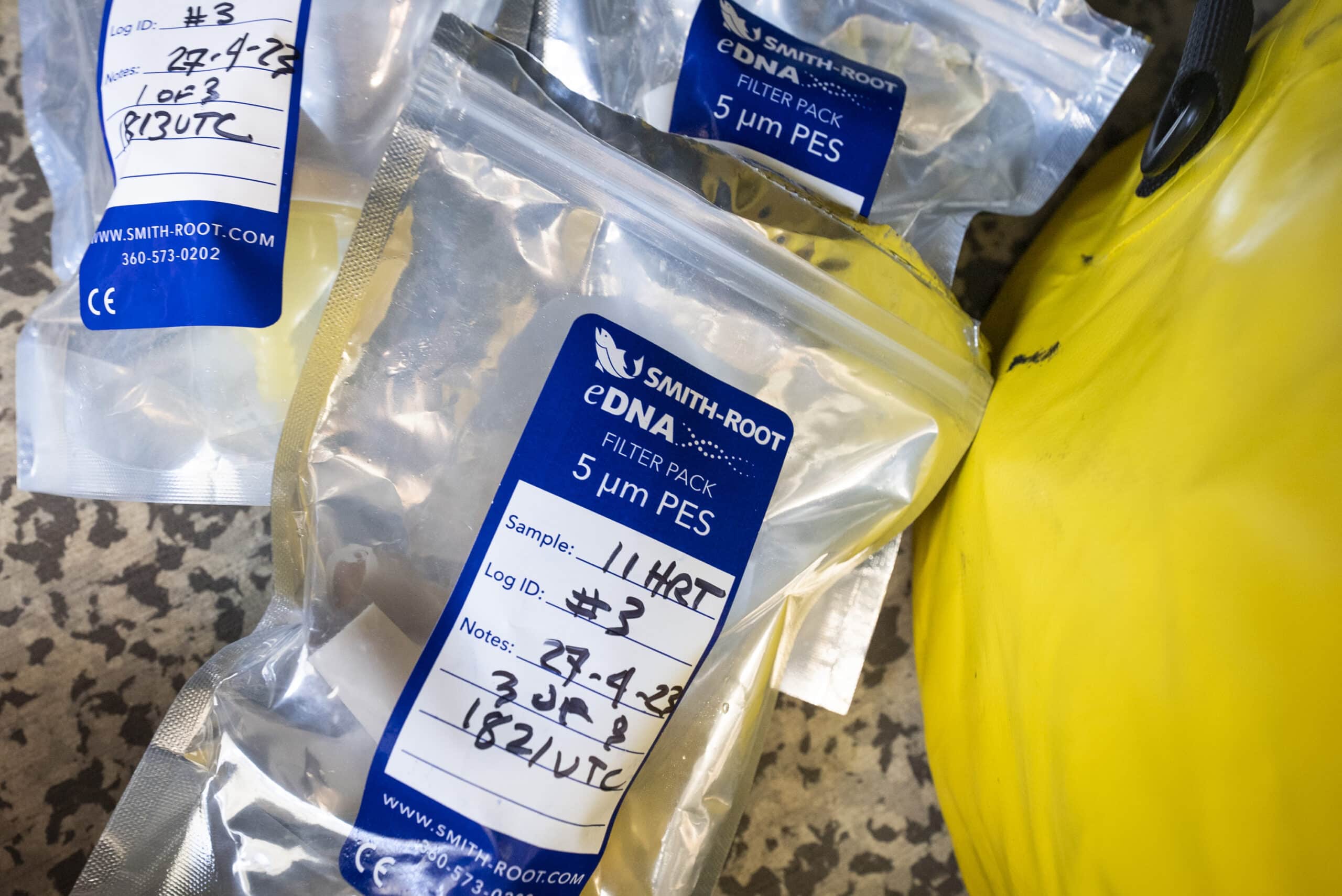EVER HEARD OF eDNA? IT’S ANOTHER EXPERIMENT WE ARE CONDUCTING ONBOARD MĀLAMA WHILE RACING
Our media crew member, Amory Ross, has taken responsibility for collecting eDNA samples as part of our citizen science program at 11th Hour Racing Team. Find out more about this really important research method that our crew are doing on Leg 4 of The Ocean Race.
As we sailed nearby the Abrolhos Bank Exclusion Zone, I got stuck in to the scheduled collection of eDNA samples, or ‘Environmental DNA’, our newest onboard citizen science project onboard Mālama. Environmental DNA is the DNA that organisms shed into their environment, and by utilizing science equipment we already have onboard – the OceanPack – we can pump sea water through filters which capture ocean samples for later lab analysis. This process allows scientists to identify and track the presence of a wide range of species without having to observe them directly, which is good, because we never see anything from inside our IMOCA cockpit! It is a new and non-invasive approach, and it has the potential to enhance our understanding of marine ecosystems and the health of the oceans that we sail through.
By breaking down the genetic material from one of our water samples, a lab can identify the species that have shed their DNA in the ocean around us. This can help fill in knowledge gaps about the distribution of marine species, as well as help identify areas that may be important for conservation. It’s a very exciting project and a first for this race, and I’m really excited to see what we discover along the way to Newport. We will be passing through some really nutrient-rich regions along the way, like the Gulf Stream, so I have no doubt the scientists will have their hands full with our many samples!
It’s another important opportunity to be more than just athletes out here. We can collect actual scientific data in hard to reach areas like the Southern Ocean, or bring new techniques to places like the Brazilian coast. ‘Methods’ of looking at data and their respective conclusions can always go in and out of fashion, but data is data and that lasts forever. It will always be of great value, and we can do our own part here onboard Mālama to increase the amount of data and geographic coverage of that data in a meaningful way, at no cost to our competitive campaign. It’s a great initiative and one we are lucky to contribute to. And it’s a fun way to break up the day-to-day onboard, while participating in marine conservation! Hopefully, we inspire people also to take action to protect the ocean and become citizen scientists themselves.
To learn more about the OceanPack and the science we do onboard, check out this video here.




